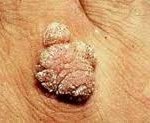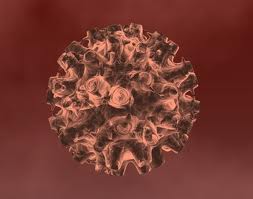The human papillomavirus or HPV is said to be one of the most common sexually transmitted infections these days. Both men and women are affected by more than 40 kinds of HPVs that could affect the genitals, throat, and mouth. Like other sexually transmitted viruses, HPV could infect anyone without them knowing about it, much like HIV or herpes. Even if the sexual partner doesn’t manifest signs and symptoms, HPV could be transmitted through direct genital contact, oral sex, and anal sex. Considering this, a person may be infected by several types of HPV. A baby can get HPV in the form of JORRP (juvenile-onset recurrent respiratory papillomatosis) upon delivery but it is very rare.
Signs and symptoms of HPV are genital warts and RRP (recurrent respiratory papillomatosis) or throat warts. HPV may lead to cancer growth in the throat, tongue, tonsils, head, neck, anus, vagina, penis, and vulva. There are several means by which people could prevent HPV. Vaccines (Gardasil and Cervarix) could be administered on young and mature women. Three doses are given and it is recommended that the same brand is used. Gardasil is recommended for men from 9 to 26 years of age. Using condoms and having monogamous relationships could also prevent HPV.
To screen for HPV, several screening tests could be done like pap smears and HPV test. But remember that there is no founded routine screening procedures for HPV. In living with HPV, Â you should remember that there are several means to make it easier for you:
1. No physical effect
 HPV is not like any other sexually transmitted disease. It doesn’t weigh you down with any physical deformities that may cause you to move away from your friends and family. You could live your life as usual with HPV. The only thing that would be a discouraging thing would be the diagnosis so basically, living with HPV is not that physically bothersome.
HPV is not like any other sexually transmitted disease. It doesn’t weigh you down with any physical deformities that may cause you to move away from your friends and family. You could live your life as usual with HPV. The only thing that would be a discouraging thing would be the diagnosis so basically, living with HPV is not that physically bothersome.
2. Treat the warts
 Living with HPV will be much better if you treat the warts that are the only physical manifestation of the virus. The warts are very contagious, they itch, and bleed. If you treat the warts, then living with HPV would be much easier for you.
Living with HPV will be much better if you treat the warts that are the only physical manifestation of the virus. The warts are very contagious, they itch, and bleed. If you treat the warts, then living with HPV would be much easier for you.
3. Live healthy
 Make sure that you maintain a healthy lifestyle. Live clean and strengthen your immune system. Living with HPV is much easier if you have a healthy body. This prevents the warts from recurring and would go away completely from about six months to a year if you keep the good habit up.
Make sure that you maintain a healthy lifestyle. Live clean and strengthen your immune system. Living with HPV is much easier if you have a healthy body. This prevents the warts from recurring and would go away completely from about six months to a year if you keep the good habit up.
4. No sex
 As a responsible adult who’s living with HPV, it would be best for you not to have sex at all when you have genital warts. Even if you do wear condoms, warts could still spread to your partner. Just abstain and get the warts treated.
As a responsible adult who’s living with HPV, it would be best for you not to have sex at all when you have genital warts. Even if you do wear condoms, warts could still spread to your partner. Just abstain and get the warts treated.
5. Protection during sex
 Even if you do not have warts at all, you should use condoms. Other contraceptives do not work on preventing HPV.
Even if you do not have warts at all, you should use condoms. Other contraceptives do not work on preventing HPV.
6. Regular check ups
 You should always go and see your doctor for regular check ups, pelvic exams in particular. In living with HPV you should monitor any changes in your cervix very well. Doing this every half a year after the first diagnosis made.
You should always go and see your doctor for regular check ups, pelvic exams in particular. In living with HPV you should monitor any changes in your cervix very well. Doing this every half a year after the first diagnosis made.
7. Talk about it
 Part of living with HPV is talking with your partner openly. You should discuss when and how you should have sex. Being there for each other would definitely help you both go through with your ordeal with HPV.
Part of living with HPV is talking with your partner openly. You should discuss when and how you should have sex. Being there for each other would definitely help you both go through with your ordeal with HPV.
Being diagnosed with HPV doesn’t mean that you should totally stop having sex. You should just know how to practice safety precautions when you do the act. This is part of living with HPV. Aside from having sex, you could also continue on living life in normalcy even if you are diagnosed with HPV. If you are sexually active and have not yet been diagnosed with HPV or have not yet experienced any genital wart growth yet, this doesn’t mean that you do not have it. You should be responsible enough to undergo pelvic exams (pap smear) when you are above 30 years of age. This would allow you and your doctor to see if there is any progressive change in your cervix that may lead to cervical cancer. You should also take note of living healthy. Strengthening your immune system is of primary importance if you are decided to battle HPV on a long term basis. Like any other disease that may come to be part of your life, you have to learn how to adapt while getting rid of it. In this case, this is living with HPV.
